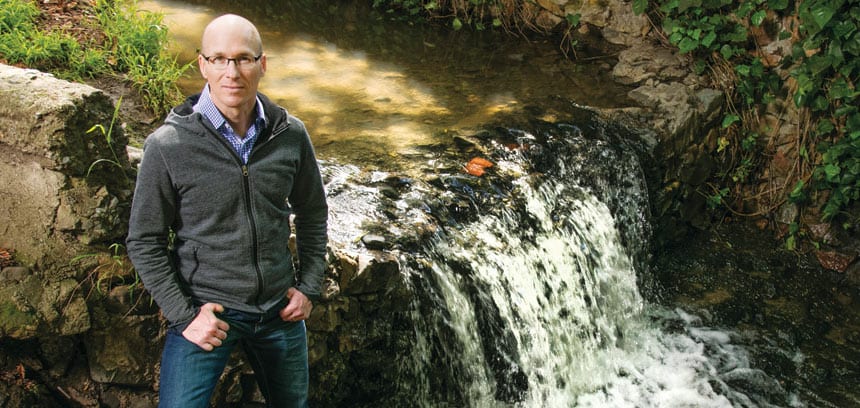
INSTITUTE OFFERS PIVOTAL GUIDANCE IN THE WAKE OF CALIFORNIA’S HISTORIC DROUGHT
There has been no drought in the recent activities and influence of the Wheeler Water Institute, a key initiative within Berkeley Law’s Center for Law, Energy & the Environment (CLEE).
In February 2016, CLEE published guidelines for local groundwater agencies that can now be created under California’s historic Sustainable Groundwater Management Act. The 2014 legislation sought to create a new local regulatory body for every watershed in the state—but provided little detail on structure, governance, and financing mechanisms.
“It’s a double whammy,” says Wheeler Water Institute Director Michael Kiparsky. “Reducing the use of groundwater is challenging enough, but doing that while also asking users to fund new oversight requires these agencies to be designed in a really robust way.”
 In a separate April 2016 report, CLEE tackled the controversy of citizen groups suing alleged violators of the Clean Water Act. The report is the first in-depth attempt to evaluate the effectiveness of citizen enforcement to address sewage overflows. It was “particularly challenging,” says Kiparsky. “This is a contentious area among stakeholders, so we’re using data to help advance the conversation.”
In a separate April 2016 report, CLEE tackled the controversy of citizen groups suing alleged violators of the Clean Water Act. The report is the first in-depth attempt to evaluate the effectiveness of citizen enforcement to address sewage overflows. It was “particularly challenging,” says Kiparsky. “This is a contentious area among stakeholders, so we’re using data to help advance the conversation.”
In 2015, CLEE analyzed how to facilitate adoption of Green Stormwater Infrastructure (GSI), which, unlike traditional networks of drains and gutters, uses vegetation and soil to cleanse rainwater. The approach mimics natural processes that result in cleaner stormwater and healthier streams.
CLEE’s analysis urges more monitoring of the costeffectiveness of individual technologies, and better dissemination of outcomes so cities and towns can transition to GSI with greater confidence. David Smith, who works on Clean Water Act permitting at the U.S. Environmental Protection Agency, says, “CLEE’s report came at the right time with the right message.” Inspired by the report, he plans to gather practitioners for a workshop on cutting-edge monitoring techniques and results.
Formed in 2012 with seed funding from the late Henry “Sam” Wheeler (see article on Bill Bagley ’52, page 62), the Wheeler Water Institute is expanding the conversation about water policies that make sense. “Part of what distinguishes the Wheeler portfolio of work is how powerfully it bridges disciplines. The results aren’t just legal analyses or scientific reports or economic briefs, but instead a true melding of perspectives to yield new solutions,” notes CLEE Executive Director Jordan Diamond ’08.
Some of the Institute’s early greatest hits include influential work on reducing the innovation deficit in urban water; launching a UC-wide coalition to examine the intersections of water data, institutions, and infrastructure in California; convening former adversaries to discuss lessons from the Mono Lake “public trust” ruling; and advising lawmakers on California’s recent fracking legislation.
“We enjoy combining the energy of students with the intellectual horsepower of faculty across UC Berkeley to solve real-world problems,” says Kiparsky. “I’m excited about the momentum we’ve generated, and there’s more to come.”
—Sophia Raday